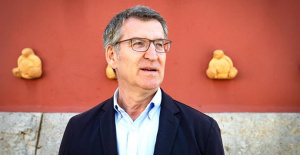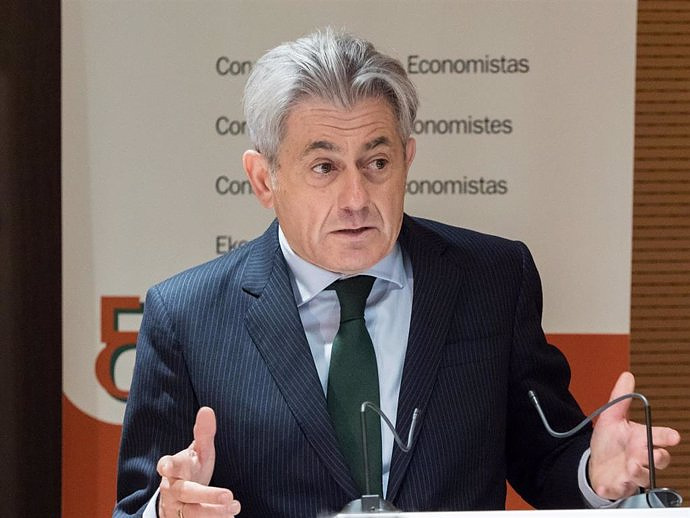Spain captured 0.1% of the market, with 37,473 million euros in assets
MADRID, 11 Mar. (EUROPA PRESS) -
Global pension assets grew again by up to 11.2% in 2023, reaching 55.7 trillion dollars (50.9 trillion euros), according to the latest global study of pension system assets prepared by Thinking Ahead Institute (TAI) of WTW.
This figure contrasts with the 50.1 trillion dollars (45.8 trillion euros) at the end of 2022, when the same TAI study had measured the largest annual drop since the global financial crisis, after a decade of uninterrupted growth.
Spain stands at 41,000 million dollars (37,473 million euros) in pension assets, 7,000 million dollars (6,398 million euros) more than the previous year and 0.7% less than a decade ago. Regarding the weight it represents in the pension markets, the country remains at 0.1%, the same percentage as that registered in 2013.
The revival of growth during 2023 is, in large part, a result of "stronger" performance of the markets throughout the year, following the negative impact seen in financial markets during 2022.
The TAI estimates that the return, measured in dollars, of a reference portfolio composed of 60% global equities and 40% global fixed income, stood at 16.6% in the twelve months to December 2023.
On the other hand, the asset allocation among global pension funds has varied and, since 2003, the prominence of equities has been reduced by nine percentage points, from 51% to 42% in 2023. Meanwhile, the allocation Fixed income remains stable at an average of 36%, the same in 2023 as in 2003.
Compared to 20 years ago, asset allocation to “other” asset classes, from real estate and infrastructure to private equity, has increased “significantly.”
These "alternative investments" now represent 20% in pension fund portfolios, up from just 12% in 2003. At the same time, reflecting awareness of market risk and systemic uncertainty, average allocations to treasury instruments have increased "slightly" from 1% to 3%.
If, in addition to Spain, we consider each market individually, the United States dominates with 63.9% of the assets among the 22 largest pension markets (P22), followed by Japan and the United Kingdom, with 6.1% and a 5.8%, respectively. Together, these countries account for more than three quarters of global pension assets.
91% of the P22 assets are concentrated in the seven largest markets, that is, 50,842 billion dollars (46,468 billion euros). Within this group, defined contribution pension plans now represent a majority of 58%.
Pension plan systems and structures continue to evolve. While defined benefit schemes continue to dominate in the Netherlands and Japan, accounting for 94% and 95% of total pension assets, other countries are seeing a steady shift towards defined contribution. It should be noted that the Dutch pension system is in the process of reform, moving from the traditional defined benefit system to the defined contribution system.
In Australia, meanwhile, defined contribution assets now represent 88% of total pension assets, while in Canada, where there was previously a clear defined benefit majority, defined contribution has increased to a considerable 44%.
In the United Kingdom, the defined contribution already exceeds a quarter of assets, meaning that British defined benefit assets stand at 74% and are progressively decreasing with respect to the total.
"Pension assets are growing again, just as the importance of the pension sector itself is constantly growing in a world that faces new challenges and opportunities to face the future with prosperity. Growth is once again the order of the day," said the director of the Thinking Ahead Institute, Jessica Gao.
"This global growth has not yet reached a rapid pace, and pension assets are still behind their pre-2022 position, but it is much better than what was recorded a year earlier. Inflation has moderated and, consequently, financial markets have remained supported by interest rates that also seem to have peaked, at least for now, in most countries," he added.
For his part, the investment director of WTW Spain, Oriol Ramírez-Monsonis, highlighted that "systemic risk continues to increase" and the expectations of pension funds have to adapt quickly to "a changing world."
"The pension industry is facing increasing pressure from regulators. The influence of governments on pension plans is very high, as they seek new forms of investment necessary to overcome capital-intensive systemic problems, such as the energy transition or the mitigation of climate change," he explained.

 Exploring Cardano: Inner Workings and Advantages of this Cryptocurrency
Exploring Cardano: Inner Workings and Advantages of this Cryptocurrency Seville.- Economy.- Innova.- STSA inaugurates its new painting and sealing hangar in San Pablo, for 18 million
Seville.- Economy.- Innova.- STSA inaugurates its new painting and sealing hangar in San Pablo, for 18 million Innova.- More than 300 volunteers join the Andalucía Compromiso Digital network in one month to facilitate access to ICT
Innova.- More than 300 volunteers join the Andalucía Compromiso Digital network in one month to facilitate access to ICT Innova.-AMP.- Ayesa acquires 51% of Sadiel, which will create new technological engineering products and expand markets
Innova.-AMP.- Ayesa acquires 51% of Sadiel, which will create new technological engineering products and expand markets Milei charges against the Spanish Government in response to some "slander and insults" by Minister Óscar Puente
Milei charges against the Spanish Government in response to some "slander and insults" by Minister Óscar Puente Feijóo, on the UN report: "We are not going to forget either the dictatorship or the terrorist group"
Feijóo, on the UN report: "We are not going to forget either the dictatorship or the terrorist group" A total of 19,887 migrants have arrived in Spain so far this year, 190% more, 15,982 of them in the Canary Islands
A total of 19,887 migrants have arrived in Spain so far this year, 190% more, 15,982 of them in the Canary Islands C-LM, Extremadura or Madrid, among the CC.AA that announce the creation of Bullfighting Awards after the suppression of Culture
C-LM, Extremadura or Madrid, among the CC.AA that announce the creation of Bullfighting Awards after the suppression of Culture How Blockchain in being used to shape the future
How Blockchain in being used to shape the future Not just BTC and ETH: Here Are Some More Interesting Coins Worth Focusing on
Not just BTC and ETH: Here Are Some More Interesting Coins Worth Focusing on Faraday UPV presents the 'Origin' rocket to exceed 10 km of flight: "It is the beginning of the journey to space"
Faraday UPV presents the 'Origin' rocket to exceed 10 km of flight: "It is the beginning of the journey to space" The Generalitat calls for aid worth 4 million to promote innovation projects in municipalities
The Generalitat calls for aid worth 4 million to promote innovation projects in municipalities UPV students design an app that helps improve the ventilation of homes in the face of high temperatures
UPV students design an app that helps improve the ventilation of homes in the face of high temperatures Ivace and promotes a less invasive device for the early detection of prostate cancer
Ivace and promotes a less invasive device for the early detection of prostate cancer A million people demonstrate in France against Macron's pension reform
A million people demonstrate in France against Macron's pension reform Russia launches several missiles against "critical infrastructure" in the city of Zaporizhia
Russia launches several missiles against "critical infrastructure" in the city of Zaporizhia A "procession" remembers the dead of the Calabria shipwreck as bodies continue to wash up on the shore
A "procession" remembers the dead of the Calabria shipwreck as bodies continue to wash up on the shore Prison sentences handed down for three prominent Hong Kong pro-democracy activists
Prison sentences handed down for three prominent Hong Kong pro-democracy activists ETH continues to leave trading platforms, Ethereum balance on exchanges lowest in 3 years
ETH continues to leave trading platforms, Ethereum balance on exchanges lowest in 3 years Investors invest $450 million in Consensys, Ethereum incubator now valued at $7 billion
Investors invest $450 million in Consensys, Ethereum incubator now valued at $7 billion Alchemy Integrates Ethereum L2 Product Starknet to Enhance Web3 Scalability at a Price 100x Lower Than L1 Fees
Alchemy Integrates Ethereum L2 Product Starknet to Enhance Web3 Scalability at a Price 100x Lower Than L1 Fees Mining Report: Bitcoin's Electricity Consumption Declines by 25% in Q1 2022
Mining Report: Bitcoin's Electricity Consumption Declines by 25% in Q1 2022 Oil-to-Bitcoin Mining Firm Crusoe Energy Systems Raised $505 Million
Oil-to-Bitcoin Mining Firm Crusoe Energy Systems Raised $505 Million Microbt reveals the latest Bitcoin mining rigs -- Machines produce up to 126 TH/s with custom 5nm chip design
Microbt reveals the latest Bitcoin mining rigs -- Machines produce up to 126 TH/s with custom 5nm chip design Bitcoin's Mining Difficulty Hits a Lifetime High, With More Than 90% of BTC Supply Issued
Bitcoin's Mining Difficulty Hits a Lifetime High, With More Than 90% of BTC Supply Issued The Biggest Movers are Near, EOS, and RUNE during Friday's Selloff
The Biggest Movers are Near, EOS, and RUNE during Friday's Selloff Global Markets Spooked by a Hawkish Fed and Covid, Stocks and Crypto Gain After Musk Buys Twitter
Global Markets Spooked by a Hawkish Fed and Covid, Stocks and Crypto Gain After Musk Buys Twitter Bitso to offset carbon emissions from the Trading Platform's ERC20, ETH, and BTC Transactions
Bitso to offset carbon emissions from the Trading Platform's ERC20, ETH, and BTC Transactions Draftkings Announces 2022 College Hoops NFT Selection for March Madness
Draftkings Announces 2022 College Hoops NFT Selection for March Madness























